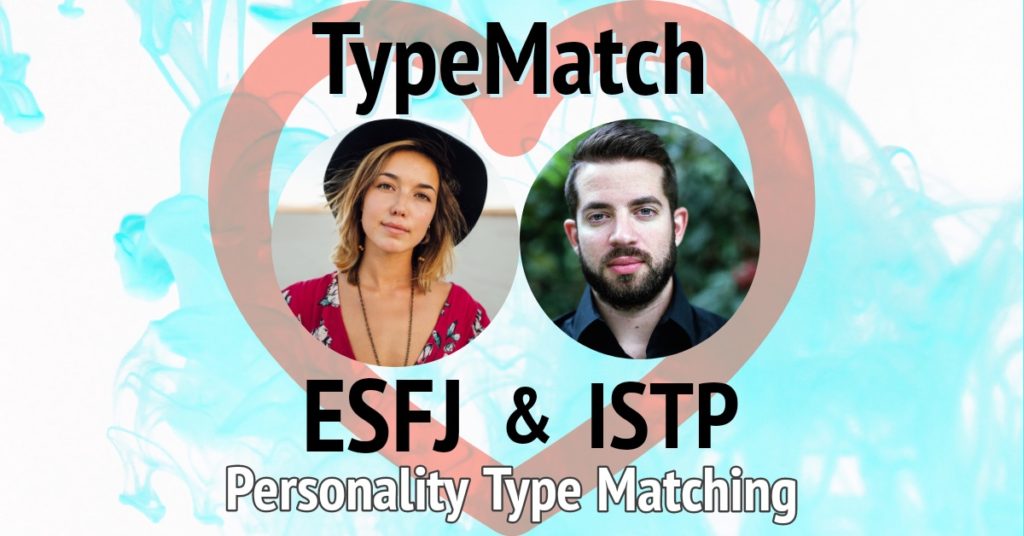The Mind Of The ISTP Personality
While I like to keep my preferences and biases to myself, there is a type that I absolutely love to explore and that’s the mind of the ISTP personality type. I have a few ISTPs in my life. Some of you know that my boyfriend is an ISTP, so I’m going to be drawing on my experience with him, and other friends of mine that are ISTPs, and talk about some aspects of them that I think are often overlooked or just not talked about in the MBTI community. I think that ISTPs are often overlooked or misunderstood in MBTI because they often keep themselves in the shadows, observing, and their delivery of information or jokes can often be very dry in a way that I actually very much enjoy, but perhaps gives people the wrong impression about what warm and insightful people they actually are. So, here’s a list of some hidden aspects that get to the root of the ISTP personality.
1. ISTPs are great at Roasting
Going along with their humor, ISTPs are excellent at roasting. Because of Se parents, they are fantastic observers and will pick out little things about the way a person moves, the way a person says certain things, certain mannerisms, little things about their aspect, and then just pick it apart and roast them. It’s absolutely on point and done in a hilarious manner. In the same way, they’ll point out logical inconsistencies that they see. If you’re part of their small inner circle, this creates a lot of inside jokes that you can share with the ISTP. They love inside jokes that result in both of you experiencing and noticing the same ridiculous thing in reality.
2. ISTPs have hidden talents
Going along with the theme of being hidden, I’ve noticed that ISTPs like to have hidden talents or knowledge bases. They won’t want to come out and show that they’re all about something. If other people are talking about whatever it is that they are actually really into and know a lot about, maybe they’ll kind of keep back and stay quiet a little. They’re not going to jump into the conversation like, yo, I’m all about this thing; I’m so good.

ISTPs don’t like to talk themselves up, but they love that moment when the person discovers, oh, you actually know a lot about this, or you know even more than I do about this, or you’re amazing at that. The ISTP then gets to have this little moment of feeling seen and valued.
3. ISTPs care about being cool and can be people pleasers
They won’t admit it, but I find that ISTPs actually do care quite a bit about social approval and that acknowledgment that they’re cool. It seems like something they wrestle with which makes sense for their Fe inferior function wanting tribe validation but at the same time rejecting it. Additionally, ISTPs don’t want to display their values – Fi demon – they’re wanting to keep that for themselves and only show it to a select few, but they like when somebody else acknowledges that.
In that same light, ISTPs can sometimes be people pleasers. I think this is surprising to many because of the way they carry themselves and their reputation for being cold (btw, not true). ISTPs can sometimes come off as a bit egotistical or maybe be egotistical in themselves, but, they’re also afraid of making anybody feel bad. They actually really care about what other people in the room are feeling. Because of that, they can struggle with people-pleasing.

4. ISTPs are often nerds
I find that ISTPs are intellectually driven. They are not just driven by sports and physical experiences. They very much enjoy intellectual pursuits. ISTPs could even turn a sport into an intellectual pursuit by studying the thing from the source and becoming the absolute best at it – think about Michael Jordan. So, that’s why they’re often called the virtuoso because they will become the absolute best at their craft by taking a studious approach.
In their studies, ISTPs really like to understand the physics of a thing, how something works. For example, my boyfriend does not ski; he snowboards. But I ski and he has taught me so much about skiing and helped me to improve my skills so much, even though he doesn’t even do it, because he understands the physics of skiing. He has studied how it works so that he can analyze my position and movements and tell me how to correct myself even though he doesn’t even ski. That’s just amazing. I love Se and Ti working together in that way.
Also, I find that ISTPs are super inventive. They are problem-solvers. I like to think that ISTPs are often the ones inventing new widgets and how to solve problems in reality. I notice that they like to teach mostly through demonstration, “Watch me do it.” They’ll explain a little bit, but it’s really much more of a visual teaching and through exposure, which is interesting.
5. ISTPs are playfully creative but don’t like the hypothetical
ISTPs are imaginative. I’ve seen that ISTPs will be able to pick up on something small, and then, from that instance, create an imaginative string of events that’s hilarious, almost like a sketch comedy playing out in their minds. They’ll be able to just crack themselves up with the ridiculousness of the scenario moving forward. Another thing I’ve noticed is that ISTPs do not like to be made to answer for hypotheticals. If you’re with an ISTP in a relationship, they don’t like it if you bring to them, “If this happens,” insert negative future possible event, “what will you do?” They don’t like being made to answer for that because they don’t know if that’s going to happen, and they don’t know exactly how things are going to be in that moment. They prefer to just see how things are at that point, and then be able to respond in the moment. They don’t like to be forced to consider a lot of hypotheticals that may not even play out in reality.
ISTP Compatibility
Who is best suited for this type of personality? TypeMatch rates ESFJ, ISFJ, and ESTP as the best matches for an ISTP. If you’re interested in more about ISTP compatibility, we have a clickable compatibility chart. You can also learn more about ISTP relationship dynamics. If you’re an ISTP looking for a relationship or a different personality type that thinks they are a compatible match with an ISTP, you can meet on the TypeMatch personality-based dating app. Links are below.

